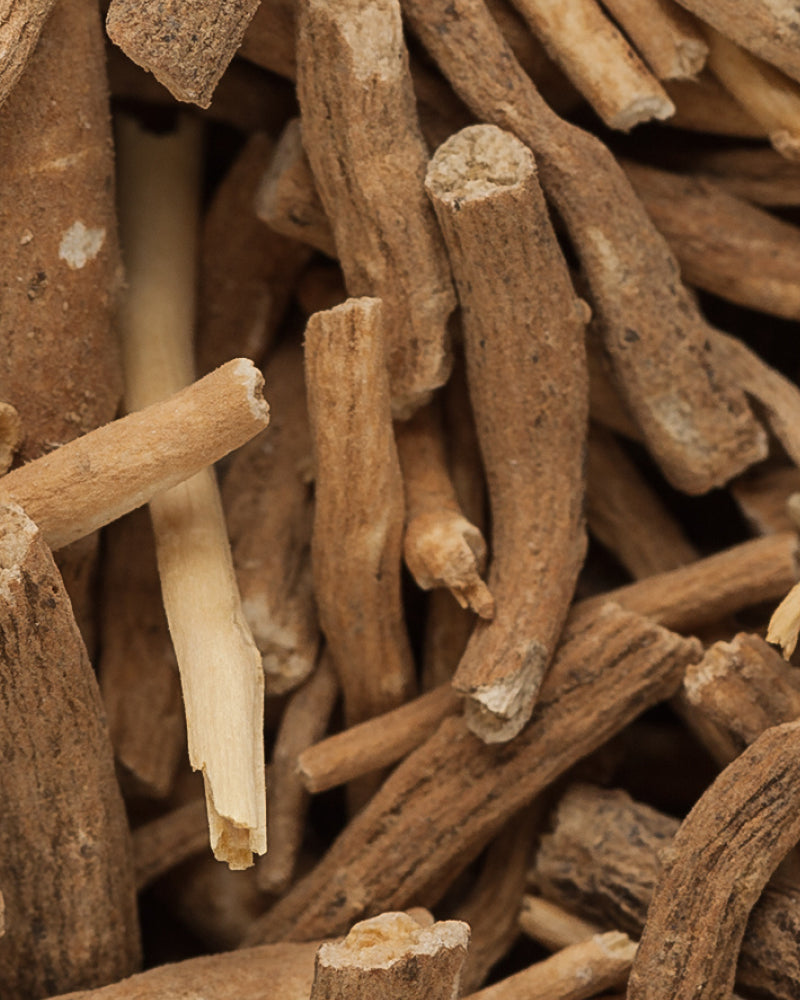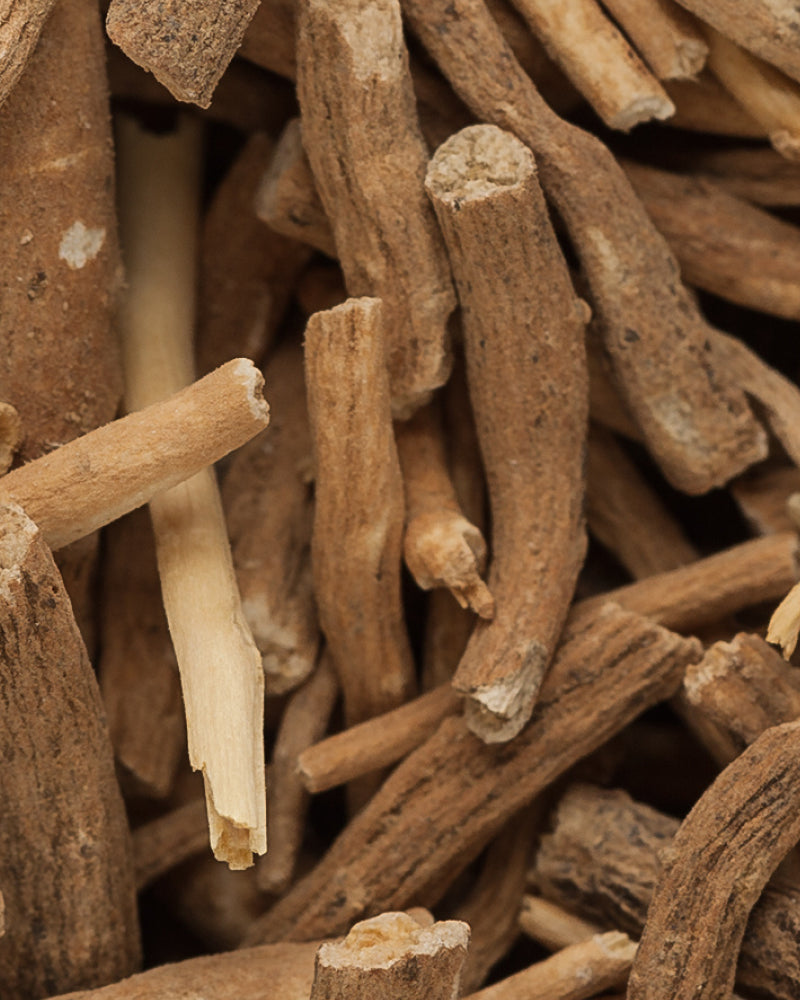Here’s the thing: there is often a physiological reason for brain fog. “At different stages of your menstrual cycle, or during times like perimenopause, hormonal changes can strongly influence brain chemicals,” says Natalie Rouse, Registered Nutritionist and Head of Nutrition at Free Soul. “That’s when forgetfulness and brain fog can really compound the stress of a demanding modern life”.
We’re breaking down what causes brain fog in women and how natural adaptogens like Ashwagandha and Lion’s Mane may support calm and cognitive clarity.
What causes brain fog in women?
Pinpointing what causes brain fog can be tricky, as there can be overlapping issues. Here are some of the main culprits:
- Hormonal changes – When oestrogen and progesterone fluctuate, they can influence neurotransmitters like dopamine and serotonin, affecting mood and cognition. This is why brain fog in women over 40, particularly during perimenopause, is so common.
- Disrupted sleep – Restless nights or insufficient sleep can significantly affect cognitive function, leaving you feeling sluggish and unfocused.
- Stress – When your stress response is triggered, it can redirect resources away from your prefrontal cortex, the part of your brain responsible for planning, decision making, and working memory.
- Dehydration – Even mild dehydration can impact how well your brain functions, making it harder for you to concentrate and get things done
- Nutritional deficiencies – A lack of certain nutrients, such as Vitamin B12, has been linked to cognitive issues, including brain fog
“Particularly in stages like perimenopause, when hormonal changes are already influencing cognition — and symptoms are also interfering with sleep quality and stress levels — women can be dealing with multiple contributors to brain fog at once,” says Natalie.
What is Lion’s Mane and what does it do for your brain?
Lion’s Mane is a functional mushroom and adaptogen that has been used for centuries in traditional medicine. More recently, it’s gained a lot of attention as a nootropic, a compound believed to help cognitive function and overall brain health.
Research has explored Lion’s Mane for its potential role in:
- Cognitive support – Some studies suggest that Lion’s Mane may help promote nerve growth factor (NGF) production, which is essential for brain cell health and communication
- Mental clarity and focus – Early research is looking at whether Lion’s Mane may support sharper thinking and cognitive performance
- Mood regulation – Some studies have looked at its role in emotional wellbeing and potential to reduce some stress-related symptoms.
“Lion’s Mane is one of the few natural compounds being studied specifically for its impact on brain health,” says Natalie. “While research is still ongoing, early findings are promising, suggesting it may be a complementary addition to a balanced lifestyle aimed at supporting mental clarity”.
What is Ashwagandha and is it good for stress and mental clarity?
Ashwagandha is an adaptogen long used in Ayurvedic medicine to help promote balance and resilience in the body. It’s been increasingly researched for its role in supporting the stress response, with many people turning to Ashwagandha for focus, emotional balance, and overall wellbeing.
Research has explored Ashwagandha for its potential role in:
- Stress management – Studies have linked Ashwagandha to a reduction in cortisol, the primary stress hormone, which may support a greater sense of calm
- Cognitive function – Research has examined its influence on memory, attention, and cognitive performance, particularly in people dealing with stress.
- Sleep quality – Poor sleep is a big contributor to brain fog, and Ashwagandha has been studied for its potential to promote more restful sleep
“Ashwagandha is one of the most researched adaptogens for stress, although research is still ongoing” explains Natalie. “By helping the body respond better to daily pressures, it may create the conditions for improved focus, mental clarity, and emotional resilience”.
Why they work better together
Lion’s Mane and Ashwagandha are a natural pairing because they tackle two sides of the same problem: stress-driven brain fog.
- Lion’s Mane has been studied for its potential support for brain health and cognitive function, potentially helping you feel more switched on
- Ashwagandha is traditionally used to support the body’s stress response, promoting a sense of calm that may make mental loads easier to manage
“When you combine them, you get the best of both worlds,” says Natalie. “Ashwagandha may help you feel calmer and more at ease, while Lion’s Mane helps you think sharper. Together, they support both cognitive clarity and emotional balance, which is especially helpful during hormonally intense times like PMS or perimenopause”.
Who is this combo best for?
It could be a great fit if any of these sound familiar:
- The Overwhelmed Multitasker – Spinning plates, living on caffeine, and running on fumes? This duo may help you feel calmer and more switched on, so you can focus without the frazzle.
- The Hormone-Shifting Warrior – Whether it’s PMS brain fog or perimenopausal forgetfulness, combining Lion’s Mane and Ashwagandha could support cognitive clarity and emotional balance when hormones are wreaking havoc.
- The Stressed-Out Overthinker – Struggling to switch your brain off, even during precious downtime? This pair may help with that “wired but tired” feeling, giving you the space to think more clearly.
- The Life-Change Adventurer – When big life upheavals are happening (new job, new house, or other life transitions), this dream team may help you keep your cool and stay on top of your game through the transition.
Whether it’s the mental load of multitasking, the hormonal ups and downs of PMS or perimenopause, or the stress of navigating big life transitions, this pairing offers a supportive way to feel calmer, clearer, and more capable.
How long does it take to feel a difference?
It varies between people, and Ashwagandha and Lion’s Mane may work on different timelines.
Lion’s Mane – Research suggests it may take months of consistent use to notice potential effects, as its support for nerve growth and cognitive function tends to be gradual rather than instant
Ashwagandha: Studies on its effects on mood and stress indicate that some people notice changes within 6–8 weeks, while others may feel calmer sooner.
“These aren’t quick fixes and everyone is different”, says Natalie. “But taken consistently, they can offer gentle, steady support that builds over time.”
Lion’s Mane, Ashwagandha & brain fog FAQs
What is brain fog?
Brain fog is the term commonly used to describe a state where you feel mentally sluggish, forgetful, or unable to concentrate.
What does brain fog feel like in perimenopause?
Many women report increased forgetfulness, difficulty focusing on tasks, and a general sense of mental “fuzziness/fog” during this time of hormonal change.
What is the best supplement for brain fog?
There are several nutrients that have been studied for supporting cognitive function, including B Vitamins, Vitamin D, Omega-3 and Magnesium. Additionally, research into supplementing with Lion’s Mane mushroom and Ashwagandha show promising results for enhancing cognitive health.
Can I take Lion’s Mane and Ashwagandha together every day?
Generally, yes, both are considered well‑tolerated with no known adverse interactions. If you’re pregnant, breastfeeding, taking medication, or managing a health condition, consult a GP before starting any new supplement.
Do they replace caffeine or work with it?
They’re not stimulants, so they don’t have the same “kick” as caffeine. However, over time they may help support a calmer, clearer state of mind, making them a gentler alternative or complement to your coffee.
Will they make me feel drowsy or too relaxed?
Lion’s Mane isn’t associated with drowsiness. Ashwagandha may promote a sense of calm, which could increase a sense of relaxation, especially when taken at night or when sleep deprived.
Can they help with focus during PMS or perimenopause?
Research into Ashwagandha and Lion’s Mane suggests they may help support cognitive function and emotional balance, which can be especially beneficial during hormonal fluctuations like PMS and perimenopause.


